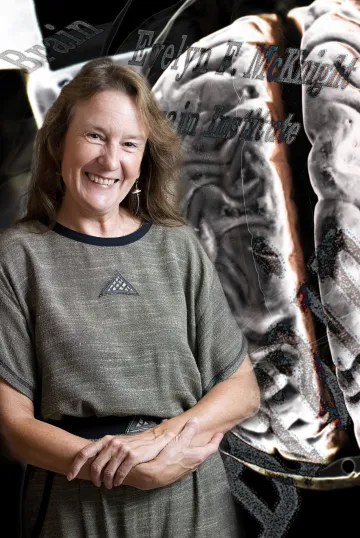Optimizing Cognitive Health
University of Arizona neuroscientist and Regents’ Professor Carol Barnes wants to enhance people’s brain health and cognition. It’s something she’s been working on her whole career.
University of Arizona neuroscientist and Regents’ Professor Carol Barnes wants to enhance people’s brain health and cognition. It’s something she’s been working on her whole career.
“Aging is not a disease. Aging is a normal developmental process,” Barnes says.
To further her research, Barnes and her team are developing a proposal to create a national precision aging center at the UA to conduct human studies. The project would be funded by the National Institute on Aging.

Carol Barnes
“One of the main problems with many studies is that they aren’t sampling a large enough population to detect individual differences in both risk and preventative factors and lifestyle, diet and genetic factors,” she says.
Barnes is working with a colleague at Translational Genomics, or TGen, in Phoenix who has developed a web-based testing platform. So far, cognitive data has been collected from 175,000 people, age 18 and above, from across the U.S. and around the world.
In addition to accessing data on cognition, the program gathers demographic data. “So we start to get a handle on who are they, where are they, what environments they live in, and what their medical and family history is,” Barnes explains.
Barnes says she and her colleagues are hoping to expand the study to 250,000 people and add collaborators across the country. The assessment program could eventually be available to people in their primary care clinics.
If the center is funded, researchers will more closely analyze subjects in four distinct geographic areas in the U.S. to better understand measurements from brain scans as well as the effects of genetics, environment, diet and other lifestyle variables.
“It would be one of the largest cross-sectional studies of aging anywhere,” Barnes says. It would eventually become a longitudinal study — following the participants over decades. With that long-term data, Barnes hopes to be able to predict, using methods like those used in precision medicine, the kinds of interactions that could improve an individual’s cognition.
“Everyone has their own life span. What we want to do is close the gap between life span and optimal cognitive health.”
